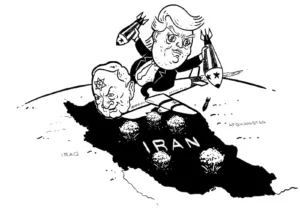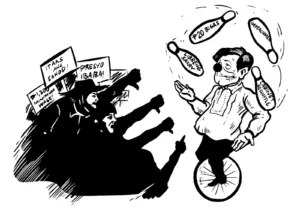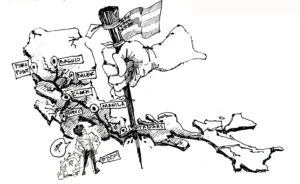Raha work (“pagraraha”) or preparing firewood for sale is very difficult and dangerous. Despite this, it is the only source of income for many Manobo natives the military evicted in Surigao del Sur since 2019. They cannot return to their ancestral lands that are occupied by the military and taken over by large mining companies and commercial plantations.
In raha work, trees for firewood are chainsawed into log pieces. It is hauled home for chopping and bundling. When transporting, especially when far from flat land, logs are rolled downhill (bar-down) and carried uphill (bar-up) if no carabao is available.
“Dangerous as it is, the earnings are very low,” says Anie, a Manobo who lives on producing raha. Anie was already once run over by a boulder while going down to where he rolled down his logs. He fell tumbling down several times. He once suffered a head injury and almost lost consciousness.
Chopped wood must follow the standard 22-inch length and a match box equivalent of girth. They are bundled by fives and stacked on piles of 50 bundles each. They sell one pile for ₱100-₱300, depending on the type of wood. Kulipapa or Dangula wood is the most expensive.
Traders buy Kulipapa firewood at ₱6/tie and sell it to consumers at ₱12/tie. The raha worker spends for the ₱500 chainsaw rental, three liters of gasoline, one bottle of guide bar oil and 2T oil, and one box of “tiebox” (plastic straw rope enough for 40 piles). With this, they can make 48 cuts of 10-inch diameter logs.
Anie says he has a family of 10, with five of them studying. His weekly earnings of ₱3,000 is extremely insufficient for their needs, not even for rice alone. They consume three gantas (1 ganta=2.5 kg) per day, at ₱145/ganta or ₱435/day.
Like Anie, many Manobo, especially the elders, deeply long to return to their community of origin where they can freely avail of the benefits of nature, having food they do not need to buy. They can grow plants for consumption and long-term crops for livelihood. In their current resettlement, food is an expensive commodity. They receive no support from any reactionary government agency. They are landless and forced to engage in jobs like preparing raha and other small means of livelihood.










